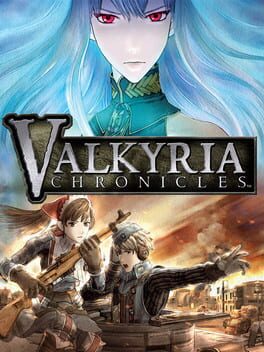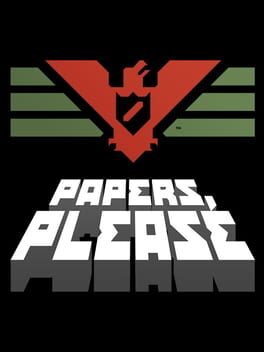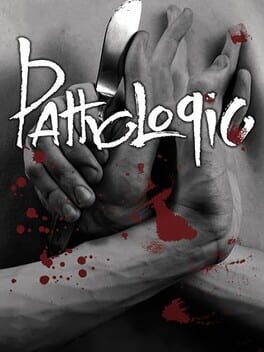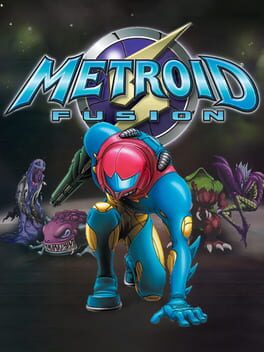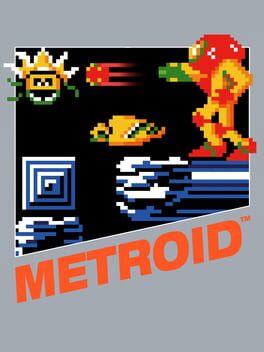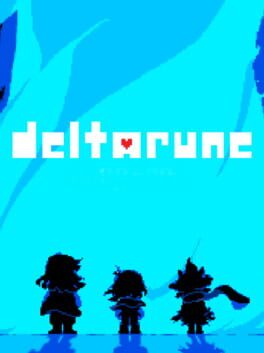oneiromantic
2008
Every other cutscene in this game made me feel like I was losing my goddamn mind. Consider that there's a reason there aren't many Japanese games about WWII. Additionally, consider why anime tropes might feel out of place in a story which more or less presents itself as the greatest hits of WWII. You may be starting to get the picture as to how certain minute aspects of the game start to overshadow the parts we're obviously supposed to be focusing on.
That being said, with the right mindset this game is genuinely fascinating because it’s incredibly well-executed for what it is. The game as a whole frames itself as a depiction of a book written about your SRPG squad, which not only sets up the methodical and highly controlled representation of the battles, but also an enormous number of cutscenes and extraneous text. While it’s not exactly half-and-half or anything, there’s a ton of the game which does nothing but tell you about the game’s chronology and world, and it’s just begging to be picked apart and held up to the real-world events they’re trying to invoke.
Also! I feel a need to say that this is an extremely playable game on its own, its class matchups are intuitive once you get the hang of it, the progression systems are engaging and robust, the battles themselves are delightfully positional, it’s great. Really my only complaint is that the game expects some form of grinding from the player at some points, which I think we can all agree only happens when the developers are told that the game needs to be longer for some arbitrary reason.
If that seems like an exceedingly surface-level review of all of the game mechanics, that’s because it is. It’s not what really drove me to irrevocably sink 60 hours of my finite life (which admittedly isn’t that much in terms of RPGs but existentially terrifies me anyways) into getting through all of its content. Like, the systems are cool, I like how they make this whole new spin on SRPG mechanics as a whole by making the world’s most complex menu in the form of an intuitive third-person shooter. But truth be told, I kept playing the game because after each mission, it would unlock a block of text for me tucked away in a glossary which would tell me about some insane social darwinist shit and make that a central aspect of the lore. There’s nothing else like it.
That being said, with the right mindset this game is genuinely fascinating because it’s incredibly well-executed for what it is. The game as a whole frames itself as a depiction of a book written about your SRPG squad, which not only sets up the methodical and highly controlled representation of the battles, but also an enormous number of cutscenes and extraneous text. While it’s not exactly half-and-half or anything, there’s a ton of the game which does nothing but tell you about the game’s chronology and world, and it’s just begging to be picked apart and held up to the real-world events they’re trying to invoke.
Also! I feel a need to say that this is an extremely playable game on its own, its class matchups are intuitive once you get the hang of it, the progression systems are engaging and robust, the battles themselves are delightfully positional, it’s great. Really my only complaint is that the game expects some form of grinding from the player at some points, which I think we can all agree only happens when the developers are told that the game needs to be longer for some arbitrary reason.
If that seems like an exceedingly surface-level review of all of the game mechanics, that’s because it is. It’s not what really drove me to irrevocably sink 60 hours of my finite life (which admittedly isn’t that much in terms of RPGs but existentially terrifies me anyways) into getting through all of its content. Like, the systems are cool, I like how they make this whole new spin on SRPG mechanics as a whole by making the world’s most complex menu in the form of an intuitive third-person shooter. But truth be told, I kept playing the game because after each mission, it would unlock a block of text for me tucked away in a glossary which would tell me about some insane social darwinist shit and make that a central aspect of the lore. There’s nothing else like it.
2020
Omori is a great game when it feels like being one. It wants to talk about escapism by setting up something pleasant and subverting it, right? Fine. Then it goes back to the pleasant thing, and it's like, okay sure what it showed us was super vague and is just meant to set up things that will pop up now and then, got it. You get through a couple hours of that and then you get an extensive, deeply moving "main story" section. It has a scripted loss with the best use of music I've ever seen in a video game. Then you go back to the tonally unchanged escapist portion of the game.
It does this repeatedly over the course of the game, and it's clearly because the main story portions of it are deliberately not very fun. The problem is, they’re not very fun to great effect! They’re nonviolent and dull and lacking in a very realistic and relatable manner. They work wonders from a storytelling perspective, I can’t think of another game that actually executes on this sort of thing nearly as well. Why are you insisting on making such a vast majority of the game being centered around the dumbed-down JRPG combat and a plot which the player will be totally disillusioned with from their first taste of the other storyline onwards?
At that, why exactly is the combat like that in the first place? They bundle together status effects, buffs and debuffs, and type matchups into a single system, such that you get this RPS thing where only rock and scissors are relevant because paper only affects your speed, crit chance, and accuracy. This does nothing but remove depth from the basic format of JRPGs, which works for the main storyline for various reasons but the fact that it’s seen as something I’ll enjoy engaging with for the bulk of the game just baffles me. Maybe it being really unengaging is actually some kind of subtle storytelling in that the main character himself doesn’t really understand this sort of thing, but I’d have no idea what to make of that in the context of the rest of the story so that’s almost certainly giving way too much credit to the developers there.
I don’t know if these criticisms are meaningful at all to people who haven’t played the game in the first place, but I feel so deeply frustrated at this game for how much it seems to want to bury its great moments. Omori is a genuinely moving game (an appallingly rare thing) but repeatedly grinds everything to a halt just so that it can be sure that people who bought the game wanting a Fun JRPG Experience can get something that nominally looks like that, for some reason. I genuinely adore the writing, I adore the structure and execution of the real-world portions, I like the parts where the dream-world’s veneer breaks down (which is all too rare until the game’s almost over), there’s a five-star game buried in here somewhere. Unfortunately, roughly half of the game is just dirt.
It does this repeatedly over the course of the game, and it's clearly because the main story portions of it are deliberately not very fun. The problem is, they’re not very fun to great effect! They’re nonviolent and dull and lacking in a very realistic and relatable manner. They work wonders from a storytelling perspective, I can’t think of another game that actually executes on this sort of thing nearly as well. Why are you insisting on making such a vast majority of the game being centered around the dumbed-down JRPG combat and a plot which the player will be totally disillusioned with from their first taste of the other storyline onwards?
At that, why exactly is the combat like that in the first place? They bundle together status effects, buffs and debuffs, and type matchups into a single system, such that you get this RPS thing where only rock and scissors are relevant because paper only affects your speed, crit chance, and accuracy. This does nothing but remove depth from the basic format of JRPGs, which works for the main storyline for various reasons but the fact that it’s seen as something I’ll enjoy engaging with for the bulk of the game just baffles me. Maybe it being really unengaging is actually some kind of subtle storytelling in that the main character himself doesn’t really understand this sort of thing, but I’d have no idea what to make of that in the context of the rest of the story so that’s almost certainly giving way too much credit to the developers there.
I don’t know if these criticisms are meaningful at all to people who haven’t played the game in the first place, but I feel so deeply frustrated at this game for how much it seems to want to bury its great moments. Omori is a genuinely moving game (an appallingly rare thing) but repeatedly grinds everything to a halt just so that it can be sure that people who bought the game wanting a Fun JRPG Experience can get something that nominally looks like that, for some reason. I genuinely adore the writing, I adore the structure and execution of the real-world portions, I like the parts where the dream-world’s veneer breaks down (which is all too rare until the game’s almost over), there’s a five-star game buried in here somewhere. Unfortunately, roughly half of the game is just dirt.
1994
A beautiful gesture of a game. After a storied career in advertising, ghostwriting a couple of famous pop songs, and various forays into creative writing Shigesato Itoi made his video game debut with Mother. I won't lie; I've never played more than a few hours of that game. It's a Dragon Quest parody, one whose tone, story, mechanics, and presentation tend to make it feel more like a beta for Mother 2 than anything actually worth my time as a video game player.
Accordingly, Earthbound has this quality of ironing out Itoi's creative regrets with the original: it's a refined, subtle, fast-paced game where every single joke lands. It's become notorious for its repeated subversion of JRPG conventions, but to reduce it to just that is a downright unfair mischaracterization in my opinion. For one thing, it's much funnier than that in a traditionally comic sense, with a lot of clever puns and plays off of surreal premises having to do with the denigration of its supposedly grounded world.
Furthermore, it’s actually a lot better at saying something about growing up than most JRPGs which center around the topic are. There’s these really cool throughlines where Giygas slowly turns out to be more like the vague idea of evil than much in particular, and the idea of confronting that within yourself in your past is really interesting. There’s also a really well-executed theme of memory, which makes sense for a game written by an adult about a child, but it really brings sequences like Magicant to life.
It’s this surprisingly emotional piece about half-remembering your childhood. The younger you’s imagination runs wild, telling this hallucinatory tale of magic statues and alien invasion. All you can really focus on is the homesickness and the chilling sight of your next-door neighbor falling apart in front of your very eyes. It’s a really wonderful game.
Accordingly, Earthbound has this quality of ironing out Itoi's creative regrets with the original: it's a refined, subtle, fast-paced game where every single joke lands. It's become notorious for its repeated subversion of JRPG conventions, but to reduce it to just that is a downright unfair mischaracterization in my opinion. For one thing, it's much funnier than that in a traditionally comic sense, with a lot of clever puns and plays off of surreal premises having to do with the denigration of its supposedly grounded world.
Furthermore, it’s actually a lot better at saying something about growing up than most JRPGs which center around the topic are. There’s these really cool throughlines where Giygas slowly turns out to be more like the vague idea of evil than much in particular, and the idea of confronting that within yourself in your past is really interesting. There’s also a really well-executed theme of memory, which makes sense for a game written by an adult about a child, but it really brings sequences like Magicant to life.
It’s this surprisingly emotional piece about half-remembering your childhood. The younger you’s imagination runs wild, telling this hallucinatory tale of magic statues and alien invasion. All you can really focus on is the homesickness and the chilling sight of your next-door neighbor falling apart in front of your very eyes. It’s a really wonderful game.
2013
Admittedly, I'm going through many of these reviews of games I can remember playing without taking the time to actually go back and refresh myself on how they make present-day me feel and how I think about the relationship between its mechanics and narrative. So it's been years since I've actually played this one, and all I really remember is this sort of gung-ho anti-Soviet aesthetic and something about discrimination as an act of deference to authority. I remember it feeling unique at the time, but nowadays I've played games far more oppressive and far more nuanced with a lot more moving parts. The fact that I feel I've forgotten so much of it, then, speaks to its quality in my opinion.
2005
One of the most thought-provoking games ever written. Unfortunately, it actively spites anyone who believes the audience's time ought to be treated as valuable. It's brutal, frustrating, slow, and extremely Eastern European. It's forbidding in a lot of ways, which is almost enough to be interesting in and of itself, but it's lacking just that extra little bit of substance to make me want to actually recommend it. It plays into that tediousness to some extent, but the things it's prodding you into doing also feel obscured by a lack of polish which is also stacked on top of the intentionally upsetting parts of the experience.
Maybe just watch a video essay about the game instead or something; I've heard Pathologic 2 is more of an actual video game but I haven't gotten around to that yet. Point is, I score this highly because I think I enjoy having experienced this game, but I don't recommend it because it's not entirely worth the trouble that actually playing it entails.
Maybe just watch a video essay about the game instead or something; I've heard Pathologic 2 is more of an actual video game but I haven't gotten around to that yet. Point is, I score this highly because I think I enjoy having experienced this game, but I don't recommend it because it's not entirely worth the trouble that actually playing it entails.
2002
1986
1994
This is the oldest video game that I like all that much. The sense of atmosphere is delightful, its map is structured in a manner which puts you into Samus' shoes remarkably well, and it manages to be really fun in ways which don't obstruct either of those goals at all.
Like, sure, it's just a more action movie-y equivalent to Ridley Scott's Alien, but hey that's a pretty dang good movie. For managing to successfully emulate that, it's a watershed videogame.
Like, sure, it's just a more action movie-y equivalent to Ridley Scott's Alien, but hey that's a pretty dang good movie. For managing to successfully emulate that, it's a watershed videogame.
TBD
If and when this game gets finished, it looks like it's going to be Wild. Judging by these first two chapters, it's even more of a video game about other video games than Undertale was, exchanging that game's fetish for expectation subversion for this sort of repeated denial of fanservice.
Some immediately interesting ideas are being developed, especially in chapter 2. A primary focus is the lack of choice in life, with some fun little solipsist undertones about the game's characters being stuck acting out the story itself. Even more interesting is the way Toby Fox is exploring the division between the player and the player character. In particular there's some optional content that I dare not spoil which really deeply unsettles with how it recontextualizes an NPC in the same light you might otherwise see the player character.
There's just a lot of strange storytelling feats being pulled off already, is my point. I'm unspeakably excited to see where the rest of this goes so that I can repeatedly rewrite this review with successively higher scores.
Some immediately interesting ideas are being developed, especially in chapter 2. A primary focus is the lack of choice in life, with some fun little solipsist undertones about the game's characters being stuck acting out the story itself. Even more interesting is the way Toby Fox is exploring the division between the player and the player character. In particular there's some optional content that I dare not spoil which really deeply unsettles with how it recontextualizes an NPC in the same light you might otherwise see the player character.
There's just a lot of strange storytelling feats being pulled off already, is my point. I'm unspeakably excited to see where the rest of this goes so that I can repeatedly rewrite this review with successively higher scores.
2015
It's essentially impossible to remove Undertale from the discourse surrounding the game and how that's changed over the years, so forming a coherent opinion about it and explaining that opinion in a reasonable word count is essentially impossible. However, at the risk of sounding like an unreasonable idiot, I've gotta say, Undertale is pretty alright.
I like the basic ideas for its systems to chat with enemies, but that it falls pretty flat in implementing them. You essentially just pick one thing to say/do to any given enemy type and survive the following bullet hell section. It just doesn't really feel like conversation so much as the surrounding menu text is telling me that I'm definitely talking to these creatures. Furthermore, the game is almost absurdly binary in its morality. Killing one enemy immediately puts you onto the neutral route, for which numerous characters will talk about the people you've killed in the plural. This is powerful in its own right, but when it comes to making any sort of statement about violence in and of itself I feel like some form of nuance across the neutral ending (ie, having multiple "neutral" routes) is sorely missed.
All of that being said, Toby Fox sure knows how to pace some bullet hell sections. Especially with the boss fights you get this really nice window into the internal lives of these characters as expressed by how they fight. Even though they're mostly abstract they really do hit pretty hard (emotionally, I mean), the Mettaton fight in particular standing out in my memory as being a very richly felt section of the game. The writing can occasionally be very of its time in a bad way--actually, fuck my tonal consistency; sometimes the dialogue is just kinda cringe--but the overarching narrative is satisfying and while the more meta stuff got shamelessly ripped off by numerous bad games in its wake, Undertale itself remains remarkably restrained in its use of the trope. Also, doing that Asgore fight during the pacifist run? Man, it's raw.
Sorry if I'm being a little unfocused: like I said, it's a bit of a Discourse-y game and some things become a bit obligatory to address. My bottom line is that the game comes across as a bit gimmicky, but when you can get past that it begins to show touches of subtlety that I can really respect more and more as time goes on. That said, the game in general is bogged down at least a little bit by the rest.
I like the basic ideas for its systems to chat with enemies, but that it falls pretty flat in implementing them. You essentially just pick one thing to say/do to any given enemy type and survive the following bullet hell section. It just doesn't really feel like conversation so much as the surrounding menu text is telling me that I'm definitely talking to these creatures. Furthermore, the game is almost absurdly binary in its morality. Killing one enemy immediately puts you onto the neutral route, for which numerous characters will talk about the people you've killed in the plural. This is powerful in its own right, but when it comes to making any sort of statement about violence in and of itself I feel like some form of nuance across the neutral ending (ie, having multiple "neutral" routes) is sorely missed.
All of that being said, Toby Fox sure knows how to pace some bullet hell sections. Especially with the boss fights you get this really nice window into the internal lives of these characters as expressed by how they fight. Even though they're mostly abstract they really do hit pretty hard (emotionally, I mean), the Mettaton fight in particular standing out in my memory as being a very richly felt section of the game. The writing can occasionally be very of its time in a bad way--actually, fuck my tonal consistency; sometimes the dialogue is just kinda cringe--but the overarching narrative is satisfying and while the more meta stuff got shamelessly ripped off by numerous bad games in its wake, Undertale itself remains remarkably restrained in its use of the trope. Also, doing that Asgore fight during the pacifist run? Man, it's raw.
Sorry if I'm being a little unfocused: like I said, it's a bit of a Discourse-y game and some things become a bit obligatory to address. My bottom line is that the game comes across as a bit gimmicky, but when you can get past that it begins to show touches of subtlety that I can really respect more and more as time goes on. That said, the game in general is bogged down at least a little bit by the rest.
2017
2004
The pixel art is rad and it's certainly more of an actual video game than Zelda 1 in that you can get through the whole thing without a guide. It's the most fluid the combat in the series ever got, though the later follow-up/love letter to it in the form of A Link Between Worlds has, yknow, something more resembling a coherent story on top of having more immediately interesting dungeons and some fun extra gimmicks. This one's still got that Sweet top-down combat on it, though.
It's, like, acceptable? The story is utterly bloodless and at that is dead on arrival with its lukewarm delivery. The dungeons are presented in a unique way and do a good job of fully taking advantage of a 3D space. Z-targeting is a historically significant innovation in the medium but doesn't necessarily elevate the game above any which lifted this mechanic from it. The combat feels limp and the boss fights feel insulting to me as a player (which makes sense, because they have likely been designed with literal children in mind). I would say it's not worth playing, but I appreciate that it exists because that is a pretext for Majora's Mask existing, which is a genuinely interesting game.
The best Zelda game in that it totally problematizes everything about the franchise and then some. I love the idea of using Link as a hero who ultimately has to save himself above any of the citizens if it came down to it, or the eeriness of your sidequests canonically being undone for the actual ending of the game, etc. The game's brokenness and repurposing of Ocarina of Time assets make it this one-of-a-kind experience that doesn't 100% work if you haven't played at least A Link to the Past and Ocarina of Time prior to it, but the sheer dread this game can instill in a person makes the boring formalities of those games suddenly worthwhile. Apparently everyone who worked on this game thinks it sucks or something but idk dude I think about it frequently
